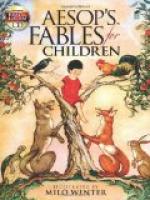|
This section contains 1,725 words (approx. 6 pages at 300 words per page) |

|
SOURCE: Bateman Edwards, "An Aesopic Allusion in the Roman D'Alexandre," in Studies in Honor of Frederick W. Shipley, by His Colleagues, Washington University Studies, 1942, pp. 95-100.
In the following essay, Edwards finds an allusion to Aesop in the "Roman d'Alexandre " that is not based on Phaedrus, Avianus, or any known French Translation, and so may be based on some undiscovered written source.
The study of fable transmission, with the enormous and complex amount of material of which much is still unknown or imperfectly studied, presents one of the most difficult problems in the history of medieval culture. The Middle Ages received their knowledge of the so-called Aesopic fable in general through the reworkings of Phaedrus and Avianus, which were themselves re-worked in numerous ways.1 That these were not the sole sources of the medieval knowledge of fable material has, however, long been known, and various possibilities of diffusion...
|
This section contains 1,725 words (approx. 6 pages at 300 words per page) |

|


